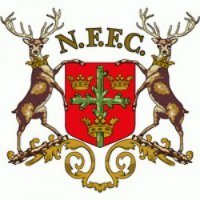UK English Test
-
Recently Browsing 0 members
- No registered users viewing this page.
-
Topics
-
-
Popular Contributors
-
-
Latest posts...
-
6
Cannabis - Medical Use Certificate - What's Your Plan?
If I choose to use cannabis medically, I'll get a prescription. Easy breezy. I stopped using it recreationally just like I stopped drinking. Not due to any problem with either (unlike bob smith), but as I've gotten older, I simply prefer not being under the influence. I don't necessarily like the feeling anymore. Trust me. I've had my fun with recreational chemicals and I thoroughly enjoyed the experience - I just don't care for them any longer. The ageing body - sh*t changes and you adapt. Personally I don't want to see any restrictions on the sale of cannabis other than an age limit and restrictions regarding where you can consume it, just like alcohol. And speaking of alcohol, I'd like to see those stupid lamebrained restrictions of the sale between 2pm to 5pm done away with. Young people like to party at night. Old retired geezers like to have a beer in the afternoon and read a paper or a book - which was usually between 2pm to 5pm. A lot of bars would just sell it, and when the cops tried enforcement it was Guinness in a coffee cup. I'm in bed by the time the youngsters are just getting started. -
40
UK Migrants in taxpayer-funded UK hotels accused of rape, assault, theft, and other crimes
...and who organized these tents? Which organization? -
10
Proof of Life.
Your pension would have been reinstated immediately if you had rung them and answered a couple of security questions. You would still have had to return the form, but the pressure would be off. -
229
Trump just made an idiot move
this idiot move was caught by who other than Trumps team. let the good times roll. bring the indictments! -
109
-
109
Israel leveling Gaza
Hamas are including the children they they themselves killed
-
-
Popular in The Pub




.thumb.jpg.bc523c85a8d558dbc282dca7a2e602c9.jpg)

.thumb.jpeg.d2d19a66404642fd9ff62d6262fd153e.jpeg)











Recommended Posts
Create an account or sign in to comment
You need to be a member in order to leave a comment
Create an account
Sign up for a new account in our community. It's easy!
Register a new accountSign in
Already have an account? Sign in here.
Sign In Now